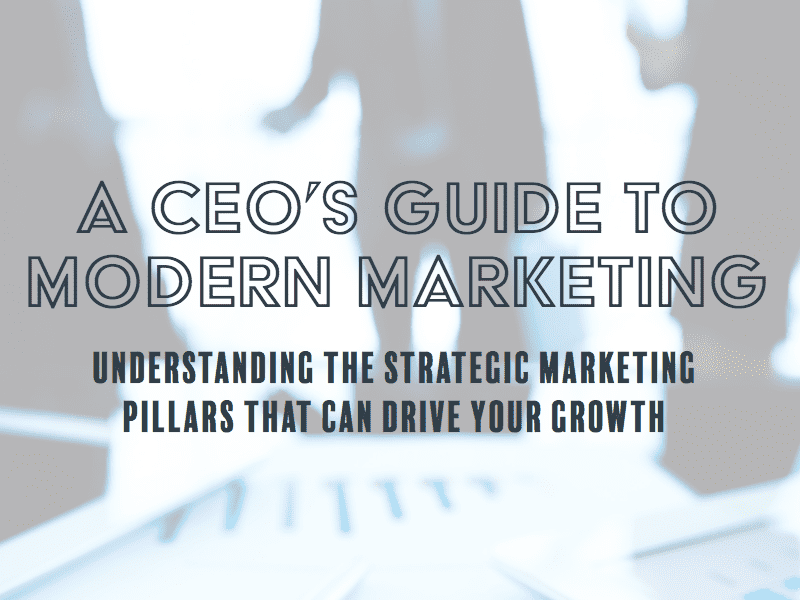Why Marketing is More Important in an Economic Downturn (and What You Should Do Right Now)
It’s officially unofficial: we’ve entered into what many are calling a technical recession (while many others dispute the claim). Ask the experts at Citigroup, Bank of America, Morgan Stanley, or any other major financial house and it quickly becomes apparent: They can’t agree on what a recession will look like this time around or if it is taking place at all (at least as of this writing).
As for whether it will be a soft or hard landing, the answer from the experts is a resounding “Who knows?!”
The fact that these and other respected organizations have wildly different forecasts on what will happen says a lot about the complexity of the economy, all the factors that influence it, and just how fast conditions can change. (Remember how the sharp decline of the early pandemic days rebounded in the blink of an eye?) When a recession will happen (if it hasn’t already), how mild or severe it will be, and how long or brief it will be—it’s anybody’s guess.
It reminds me of March-April 2020, when we were all caught up in the alphabet soup of predicting what the post-pandemic recovery would look like. Would it be a V, U, W, or L-shaped recovery? Thankfully, V (for victory!) won out.
No one knows for sure what to expect this time. History is on our side, since most recessions have been relatively short stints followed by much longer periods of growth. But if there’s one thing we know for sure, it’s that you can’t count on the past to predict the future.
But one thing you CAN count on? The fact that marketing is even more important to your business during tough economic times—regardless of whether it’s officially labeled a recession and how long the pain lasts.
Why a recession is no time to retreat from marketing
You can’t grow your business and stay ahead of the competition if you’ve burrowed into a hole to wait out the storm. But that’s exactly what some companies do when times get tough.
A Harvard Business Review article suggests what the marketing community has known for decades: When the economy takes a downturn, the worst thing you can do is stop investing in the very initiatives that will drive your business forward, including marketing. Of course, you need to be judicious about your investments and direct your resources effectively. But this is no time to draw down the shades and pull up the covers.
Studies dating back to the 1950s show that companies that maintain their marketing during an economic downturn perform better over the long term than those that cut, cut, cut. By viewing marketing as an investment in their growth and profitability, rather than an expense, these businesses flourish while others languish.
It’s time to get creative.
While it’s easy to become fearful when the economy takes a downturn, the opposite is a far better approach: Now is the perfect time to get excited by the opportunity to innovate and optimize. It’s always wise to fine-tune your marketing so you’re focusing more resources on what’s working well and tweaking what could be improved. In difficult times, this approach separates the winners from the laggards.
Unfortunately, we’re already seeing signs that some businesses are starting to retreat. Perhaps they didn’t have a strong financial foundation to begin with. Maybe they don’t know any other way. But as we’ve said before, what you do during challenging times will affect your brand, your reputation, and your business for years to come.
So what should you do?
There’s no single one-size-fits-all answer for how to handle your marketing during an economic downturn. The specifics might depend on where you are in your growth journey, your business model, and even the types of customers you target. But there ARE a few best practices that can help any business approach marketing effectively in times like these.
- You’ve got to be strategic. We’re never in favor of random acts of marketing. They’re nothing more than busywork that rarely moves the needle on generating revenue or achieving other business objectives. But when your resources are even more limited than usual, you absolutely cannot afford to engage in marketing that isn’t 100% aligned with your business goals and strategy. Resist the temptation to “just do something” and use this time instead to develop a strategic marketing plan with the help of an experienced senior marketing professional, like a Fractional CMO.
- You’ve got to be efficient. Staffing a big in-house marketing team is rarely effective for middle market companies. In tough economic times, it’s downright impossible. You risk ending up with a team of coordinators instead of an army of doers—and no one to set the right direction. A fractional marketing approach is a better way to get both the strategic direction and tactical execution you need to turn marketing into a competitive advantage. And it’s much more cost-efficient and effective at generating a steady stream of leads that turn into sales. (Not familiar with fractional marketing? Read up on how it can get you the right “slice” of a Fractional CMO and the marketing tacticians who can plan, write, manage, design, test and measure your marketing for high ROI.)
- You’ve got to be data-driven. Marketing based on gut instinct doesn’t work in good times. So why would you engage in it during lean times? If you expect to generate leads that turn into sales, you need to tie your marketing to key performance indicators (KPIs) and measure your progress against them. Savvy marketers leverage the power of data analytics to make sure they’re doing the right things, doing them well, and realizing a strong ROI.
- You’ve got to be aligned. When sales and marketing work in silos, which is common in middle market companies, bad things happen. Warm leads that are ready for a sales touch get forgotten. (Yikes!) Other leads leak right out of your revenue funnel, like a faulty faucet. (Ouch!) Unless your sales and marketing teams are aligned on goals, rowing in the same direction, with systems and processes that keep moving leads further down your revenue funnel until they’re closed sales, you could be wasting your marketing dollars. A Fractional Chief Growth Officer can align sales and marketing to achieve measurable growth and create a seamless, compelling experience for your buyers, from first touch to final close.
- You’ve got to be nimble. Even if the economic recovery doesn’t turn out to be the yo-yo “W scenario” we feared during the early pandemic days, we still could be in for Mr. Toad’s Wild Ride. (The stock market gyrations sure make it seem that way!) When the world is volatile and uncertain, your marketing needs to be agile and adaptable. If there’s one thing the pandemic taught us marketers, it’s how to master the pivot. And that’s one of the advantages of fractional marketing: It allows you to flex up or down, pivot as needed, and tap the exact marketing resources you need at any point. By keeping your in-house team lean and your marketing costs variable, you gain the competitive advantage of being able to adapt to whatever the economy throws at us.
No matter what happens in the coming months, how you approach your marketing will have a big impact on your company’s performance today and tomorrow. With an experienced B2B marketing partner by your side, you can be sure you’re optimizing every budget dollar and achieving the best ROI.
Marketri’s fractional approach to B2B marketing makes us the right partner for middle market companies! Our fractional model is the cost-effective, results-driven approach that helps growth-minded companies thrive in any economy.
Contact us to learn about our fractional marketing services and how they can help you generate more leads and more revenue.
More questions about what the fractional marketing model looks like? Check out our new guide for executives:






